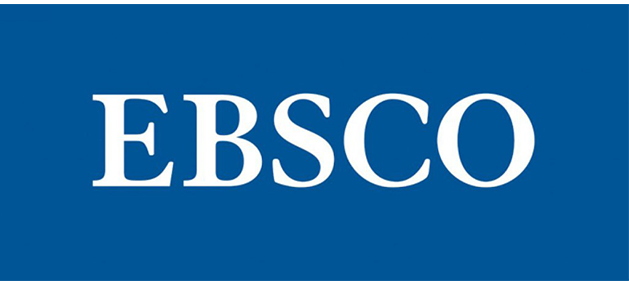Examples of Good Practices that Generate Trust, Learning Cultures and Organization Resilience
Keywords:
trust, learning culture, corporate culture, organizationAbstract
The development of a learning culture has been a priority for organizations around the world for decades. Its importance has been further highlighted by the onset of the pandemic and other events in the VUCA world. However, in practice, achieving this goal proves to be challenging, possibly due to the low levels of trust observed within organizations. This paper examines the crucial relationship between trust generated in an organization through certain practices and the level of development of a learning culture. Besides a theoretical review highlighting the significance of this relationship, the paper presents results from a pilot study conducted in 2020 with a sample of 101 employees from organizations in Serbia. The findings confirm the hypothesis of a significant correlation between practices that generate organizational trust and the learning culture. The strongest correlations with the learning culture are found in managers providing relevant feedback, support for learning through micro-lessons from managers, and the openness of superiors to show their weaknesses and gaps in knowledge and skills. Based on these findings, recommendations for applying the results in practice are formulated.
References
Botsman, R. (2018). Who can you trust? How technology brought us together and why it could drive us apart. London, UK: Penguin Books Ltd.
Cavanagh, A.J., Chen, X., Bathgate, M., Frederick, J., Hanauer, D.I., Graham, M.J. (2018). Trust, Growth Mindset, and Student Commitment to Active Learning in a College Science Course. CBE Life Sci Educ.;17(1): ar10. doi: 10.1187/cbe.17-06-0107. PMID: 29378750; PMCID: PMC6007784.
Eisenberger, R., Huntington, R., Hutchison, S., & Sowa, D. (1986). Perceived organizational support. Journal of Applied Psychology, 71(3), 500-507.
Gavin, A. D. (1993). Building a Learning Organization: Beyond high philosophy and grand themes lie the gritty details of practice. Harvard Business Review.
Grossman, R. J. (2015). How to Create a Learning Culture. HR Magazine. Pristupljeno 5. Oktobra 2023 na: https://www.shrm.org/hr-today/news/hrmagazine/pages/0515-learning-culture.aspx
Groysberg, B., Lee, J., Price, J. & Cheng, Y.J. (2018). The leaders guide to corporate culture. Harvard Business Review, 44-52.
Hayward, S. (2018). The Agile Leader: How to create an agile business in the digital age. London: Kogan Page.
Knežević, J (2015). Uloga bazičnih psiholoških potreba i samoregulacije u prevladavanju percepcije nestabilnosti zaposlenja. Nepublikovana doktorska disertacija. Univerzitet u Novom Sadu, Filozofski fakultet Novi Sad.
Knežević, J. i Velikić, D. (2013). Psihološke determinante sportskog postignuća. Subotica: autorsko izdanje.
Cochrane, H., i Newton, T. (2019). Supervizija i koučing u transakcionoj analizi: Rast i učenje u profesionalnoj praksi. Novi Sad: Psihopolis institut.
Marquardt, M.J. (2002). Building the learning organization: mastering the 5 elements for corporate learning. 2nd ed. Palo Alto, CA: Davies-Black Publishing.
Marsick, V.J., & Watkins, K.E. (2003). Demonstrating the value of an organizational learning culture. Adv Dev Hum Resour, 5(2): 132–151.
McKenna, J. (2023). Build a Strong Learning Culture on Your Team. Harvard Business Review. Pristupljeno 7. Septembra 2023 na: https://hbr.org/2023/06/build-astrong-learning-culture-on-your-team
Mitrić - Aćimović, D, i Šolak, R. (2022). Validacija upitnika organizacioni faktor poverenja. Usmeno saopštenje na Međunarodnoj naučnoj konferenciji “Aktuelnosti u logopediji, okupacionoj terapiji, psihologiji i socijalnom radu - ALOPS22”. Beograd, 1. - 2. decembar 2022. Knjiga apstrakata, Visoka škola socijalnog rada, Beograd, str. 176 - 177.
Mitrić-Aćimović, D. (2021). Građenje boljih kultura: Ključne lekcije za lidere i HR. Novi Sad: Culture Impact.
Mortensen, M. & Gardner, H. K. (2021). WFH Is Corroding Our Trust in Each Other. Harvard Business Review. Pristupljeno 9. Septembra 2023. na: https://hbr.org/2021/02/wfh-is-corroding-our-trust-ineach-other
Rotenberg, K. Dž. (2018). Psihologija poverenja: Zašto verujemo ljudima? Novi Sad: Psihopolis.
Sklar, D.P., & McMahon, G.T. (2019). Trust Between Teachers and Learners. JAMA, 321(22) : 2157–2158. doi:10.1001/jama.2018.22130
Stjuart, I. i Džoins V. (2011). Savremena transakciona analiza. Novi Sad: Psihopolis.
Wahda, W., Mursalim, M., Fauziah, F., & Asty, A. (2020). Extra-Role Behavior Improvement Model: Organizational Learning Culture, Organizational Trust, and Organizational Justice Approach. Int. J. Eng. Bus. Manag., 12, 1–12.
Zak, P. J. (2017). The Neuroscience of Trust. Harvard Business Review. Pristupljeno 5. decembra 2017. Na: https: //hbr.org/2017/01/theneuroscience-of-trust
Dorio, M. (2024). THE IMPACT OF CULTURE ON A RESILIENT COMP . Journal of Entrepreneurship and Business Resilience, Vol.7, No.1, 125–131. Retrieved from https://jebr.fimek.edu.rs/index.php/jebr/article/view/123
Downloads
Published
How to Cite
Issue
Section
License

This work is licensed under a Creative Commons Attribution-NonCommercial-NoDerivatives 4.0 International License.
http://creativecommons.org/licenses/by-nc-nd/4.0














